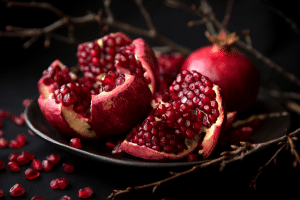
New Year’s Eve Around the World
Every country has its own unique way to welcome the new year and wish for good luck. You might be familiar with the famous ball drop in New York City, but do you know of other New Year’s Eve traditions around the world?
Before stressing about your New Year’s resolutions, why not take some time to celebrate? Read on for 5 New Year’s Eve traditions from different cultural traditions to inspire your festivities this year.
Brazil: Wearing White

This Brazilian tradition came from the Candomblé religion. People used to wear white during rituals to seek peace and spiritual purification. And now this is continued on New Year’s Eve when people hope to attract peace and spiritual protection for the coming year by wearing white outfits.
Haiti: Soup Joumou

January 1st is a special day for Haiti. It is not only the start of a new year but also the day to commemorate Haitian revolutionary leader Jean-Jacques Dessalines declaring the country’s independence from its French colonizers. For this special day, try following a recipe for a soup joumou, a squash-based soup with beef, carrots, turnips, potatoes, pasta, and more veggies.
Japan: Hatsuhinode

You might have heard of Hatsumode (first shrine visit) from popular media, but what to do on New Year’s when there is no shrine or temple in your area? No fear! Try Hatsuhinode instead by waking up at dawn to witness the first sunrise on New Year’s Day! This tradition is to welcome Toshigamisama, the deity of the New Year, for good fortune and happiness for the coming year.
Scotland: First Footing

Call your dark-haired friend or relative for a new year’s visit! Stemming back to the time of the invading Vikings in the 8th and 9th centuries, it is believed that the first person to enter a house, the “first foot”, can bring luck – or misfortune – for the year ahead. In Scottish tradition, good luck comes in the form of a tall, dark-haired man being the first footer. On the other hand, women, light-haired men, and redheads were seen as harbingers of ill fate.
Turkey and Greece: Smashing Pomegranates

Remember to grab a few pomegranates when you are doing your last-minute grocery haul next week! In both Turkey and Greece, people smash pomegranates into the floor or front door on this special day. The more seeds that burst out, the more good fortune you will acquire. The pomegranate is a sign of luck, prosperity, and fertility. It is also a sign of renewal and regeneration.
